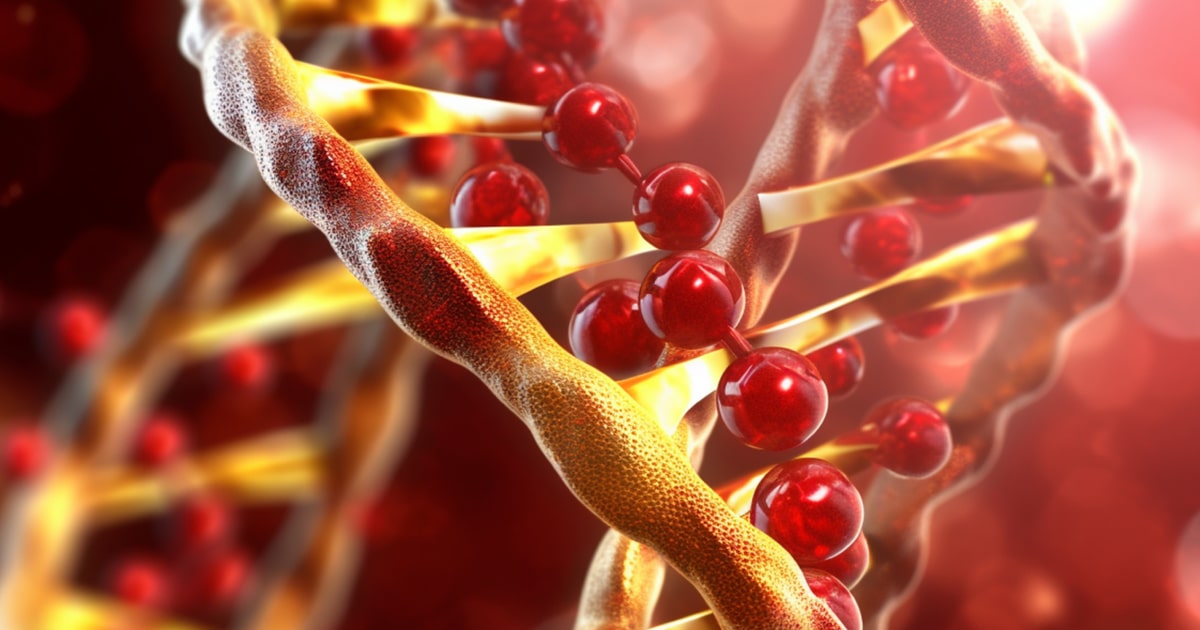
Expert Reviewed By: Dr. Brandon Colby MD
Neuronal ceroid lipofuscinosis 13 (CLN13) is a rare, inherited neurodegenerative disorder that poses significant challenges in diagnosis and management. Characterized by a diverse array of clinical symptoms, including seizures, vision loss, and cognitive decline, CLN13 is part of a larger group of disorders known as the neuronal ceroid lipofuscinoses (NCLs). These conditions are often difficult to diagnose due to their varied presentations and overlap with other neurological disorders. However, recent advancements in genetic testing have opened new avenues for accurate diagnosis and personalized treatment strategies.
Understanding Neuronal Ceroid Lipofuscinosis 13
CLN13 is caused by mutations in the CTSF gene, which encodes the protein cathepsin F. This protein plays a crucial role in the normal functioning of lysosomes, the cellular organelles responsible for breaking down waste materials and cellular debris. Mutations in CTSF disrupt this process, leading to the accumulation of lipofuscins—fatty substances that are toxic to neurons. This accumulation results in the progressive degeneration of nerve cells, manifesting as the clinical symptoms associated with CLN13.
The Promise of Genetic Testing in CLN13
Genetic testing has emerged as a powerful tool in the diagnosis and management of many genetic disorders, including CLN13. By analyzing an individual's DNA, genetic testing can identify specific mutations in the CTSF gene, confirming a diagnosis of CLN13 and distinguishing it from other forms of NCLs or neurological disorders.
Early and Accurate Diagnosis
One of the primary benefits of genetic testing in CLN13 is the ability to achieve an early and accurate diagnosis. Given the overlapping symptoms of NCLs and other neurodegenerative diseases, clinical diagnosis can be challenging. Genetic testing provides a definitive method to identify the presence of CTSF mutations, allowing for a precise diagnosis. This is crucial for initiating appropriate medical interventions and providing families with a clearer understanding of the disease prognosis.
Personalized Treatment Strategies
Genetic testing not only aids in diagnosis but also plays a significant role in tailoring treatment strategies. Understanding the specific genetic mutation involved can help healthcare providers predict disease progression and response to certain therapies. As research into CLN13 and related disorders continues, genetic information may guide the development of targeted therapies that address the underlying genetic cause, potentially slowing disease progression and improving quality of life.
Family Planning and Genetic Counseling
For families affected by CLN13, genetic testing offers valuable insights for family planning and genetic counseling. Identifying carriers of CTSF mutations can inform reproductive decisions and allow for early interventions or monitoring in future pregnancies. Genetic counseling can also provide support and education for families, helping them understand the implications of genetic findings and navigate the emotional and practical challenges associated with CLN13.
Expanding the Clinical Spectrum of CLN13
Recent studies, such as the one described in [this reference](https://pmc.ncbi.nlm.nih.gov/articles/PMC11668517), highlight the diverse clinical presentations of CLN13 and underscore the importance of genetic testing in expanding our understanding of the disease. By identifying new CTSF variants and their associated symptoms, researchers can refine diagnostic criteria and improve the accuracy of genetic testing, ultimately leading to better patient outcomes.
Conclusion
The integration of genetic testing into the diagnostic process for neuronal ceroid lipofuscinosis 13 represents a significant advancement in the field of neurogenetics. As our understanding of CLN13 and its genetic underpinnings continues to evolve, genetic testing will play an increasingly vital role in diagnosis, treatment, and family planning. By harnessing the power of genetic information, healthcare providers can offer more personalized and effective care to individuals with CLN13, paving the way for improved quality of life and better disease management.
About The Expert Reviewer
Dr. Brandon Colby MD is a US physician specializing in the personalized prevention of disease through the use of genomic technologies. He’s an expert in genetic testing, genetic analysis, and precision medicine. Dr. Colby is also the Founder of and the author of Outsmart Your Genes.
Dr. Colby holds an MD from the Mount Sinai School of Medicine, an MBA from Stanford University’s Graduate School of Business, and a degree in Genetics with Honors from the University of Michigan. He is an Affiliate Specialist of the American College of Medical Genetics and Genomics (ACMG), an Associate of the American College of Preventive Medicine (ACPM), and a member of the National Society of Genetic Counselors (NSGC)